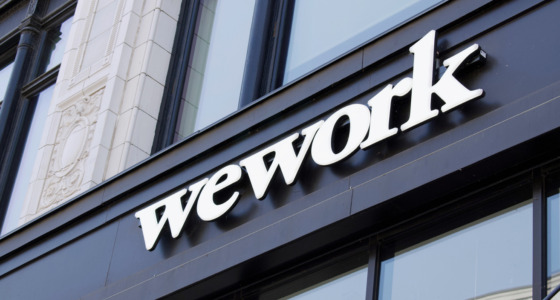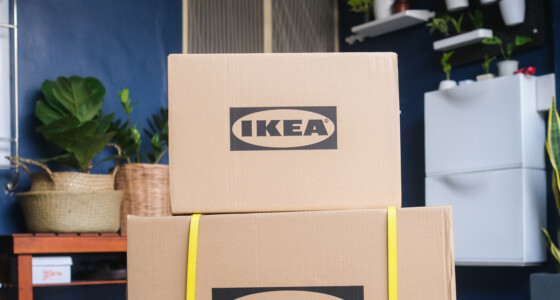

Amazon has everything. Well, you can’t buy or sell full-size homes, cars, cigarettes, and live animals because that’s against the company’s policy. But other than that, the e-commerce giant sells everything from books to groceries to shipping containers.
Amazon’s growth over the years has been not only impressive but record-breaking. And there are a few factors suggesting that it can continue for the rest of the decade. Let’s look at key elements of the company’s projected success.
1. Owning all aspects of the supply chain
The Amazon supply chain process has four elements in play:
- Manufacturing: Amazon still allows third-party sellers, but it’s doubling down on in-house white-label manufacturing.
- Warehousing: Strategically placed, inventory spread across storage areas based on demand, optimized internally (roughly 100,000 robots are in use).
- Delivery: A host of delivery options is one of the biggest differentiators: Prime, Hub & Locker, Hub Counter, No-Rush Shipping, Designated Day, Release Date, etc.
- Technology: The use of technology speeds up fulfillment, reduces employee workload, and frees up funds.
Thanks to the optimization of all four elements, Amazon is becoming largely self-reliant, making it harder to lower-volume competitors to keep up.
2. Owning a large part of the internet
While being known for its online store, it only accounts for a small portion of Amazon’s revenue. Most of its returns are coming from Amazon Web Services (AWS). With AWS serving over a million companies across the world, it can be credited as one of the largest internet-based operating systems.
When AWS started in 2003, it provided basic cloud services for storage and mail. Now, it powers AI, blockchain, and other next-gen technologies (quantum computing, augmented reality, etc.). A set of 175+ tools allows Amazon to control 33% of the computing market, leaving Microsoft and Google far behind, with market shares of 18% and 9%, respectively.
3. The rise of Alexa
Amazon Echo proved that voice technology isn’t a fad. Years ago, people dismissed Alexa as Amazon’s pet project. Now, with 200 million Alexa-enabled devices sold and 90 thousand voice skills developed, Amazon is the biggest player in the IoT voice control space.
Future iterations of Alexa might be the key to Amazon’s understanding of what consumers want. Specifically, Alexa might evolve from a reactive assistant to a proactive companion. Rohit Prasad, Senior Vice President and Head Scientist for Alexa, says Alexa will take on a more active role, forming opinions and making suggestions.

4. Going after industries one by one
Amazon has set out clear intentions to extend its operations beyond digital retail and cloud computing. In the next five years, it’s expected to continue its disruptive ambitions in certain industries, as well as enter a whole host of new ones:
- Fulfillment & delivery: Amazon’s decades of e-commerce logistics experience have built a foundation for Amazon Logistics. The service is already exploring new patents and initiatives, cutting out the middlemen.
- Payments: The company is building out a presence in the payments space through Amazon Pay, Amazon Cash, Amazon Visa debit/credit cards, Amazon Reload, Amazon Go, Amazon Fresh, and Amazon One.
- Pharma: Along with delivering medication, Amazon Pharmacy will connect members with pharmacists via a self-service, around-the-clock help portal. It has already partnered with 50,000 pharmacies.
- Financing: The invite-only nature of Amazon Lending might change into a more inclusive model and make small business loans more accessible.
- Insurance: Amazon began offering cost-free health insurance to its sellers in India. The plan is to offer home, product, and car insurance to Prime customers worldwide.
- Brick-and-mortar retail: The launch of a physical store called Amazon Style is the first step into the offline shopping market.
- Smart home: The company has been rolling out smart devices, starting from the Amazon Echo smart speaker. So far, the company has invested in about 30 smart home-related deals.
5. A decade of expansion
Amazon is about to diversify not only its product and service range but also geographies. Focusing on geographic diversity should help Amazon recruit more broadly, which has been a concern from community activists. What’s more, employment growth is expected in not only fulfillment centers (which have been the most prevalent) but also in the corporate sector.
There is another major shift happening at Amazon – turning to owning rather than leasing land. Amazon’s maturing into a property empire might have serious implications for the industrial real estate market.
Takeaway
Amazon’s growth is slowing down compared to its financial indicators at the peak of the pandemic. Nevertheless, the economic reopening has contributed to the company’s continued growth in its profitable segments. A slower pace of growth is actually nothing for the largest Internet company in the world.
Bezos believes, “If you do it right, a few years after a surprising invention, the new thing has become normal. People yawn. That yawn is the greatest compliment an inventor can receive.”
So, maybe Amazon won’t have the reputation of an industry disruptor forever. But e-commerce and AWS, two huge pillars within Amazon, can carry the company to even greater heights in the next several years.









